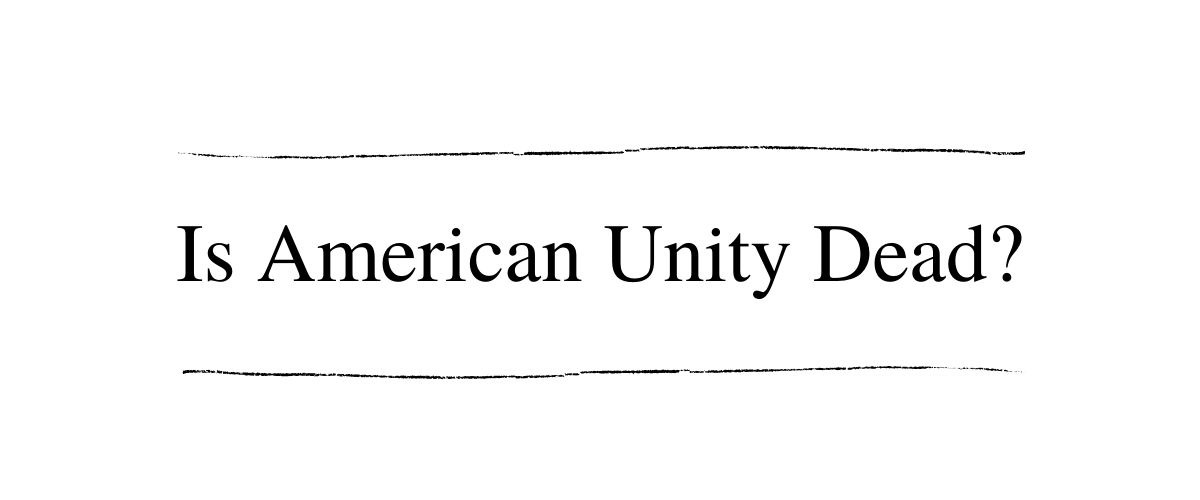People on all sides of the political spectrum claim that American unity is dead.
All sides hear the call for unity, for peace, for love, and all reject it. All sides claim that the others are too far gone. It doesn’t look like prospects of unity could be much bleaker.
But here at We ’73, we’re fighting for it harder than ever.
To understand why we still stand for unity, let’s look at what unity isn’t, and what it is.
Unity Isn’t
Unity isn’t ignoring the problems because addressing them would cause conflict.
Unity isn’t forcing people to agree with you.
Unity isn’t embracing political standpoints you disagree with.
Unity isn’t pretending like everyone is happy, even when you see injustice.
Unity isn’t being passive and quiet when you disagree with something.
Unity Is
Unity is seeing the problems around us and finding ways to address those issues.
For example, poverty. While many people get angry and upset that people live in poverty, you could decide that rather than expecting someone else to do something, you’ll personally take action to help the people who live in poverty. You could volunteer at a food bank, contact local businesses to encourage them to donate to a cause, you could help out at a ministry that helps people find good jobs, or you could do any number of other things to help people. The same thing goes for any problem in our society—racism, abuse, human trafficking, addiction, mental illness. Taking action to find loving, productive ways to help—that’s unity.
Unity is finding points of agreement instead of villainizing.
People might have different opinions about a myriad of different things. It’s easy to villainize people you disagree with, picking out the worst possible points they could potentially be making and capitalizing on them. Instead of doing so, you could decide to back things up and start at the beginning: agree that all people are created equal with certain unalienable rights. If you can agree on that, you can venture on, finding more points of agreement and having intelligent discussions about the differences of opinion. That’s unity.
Unity is treating people like individuals.
With everybody’s opinions flying around, it’s easy to imagine that everyone who disagrees with you believes the same things. When you hear about people who believe extremist, morally reprehensible things, it’s easy to forget that not everyone who disagrees with your points is an extremist. In fact, most people aren’t. Keep in mind that all sides have extremists. Just like you don’t want your reasonable opinions associated with the extremists who (unfortunately) align themselves with your side of a controversy, people who disagree with you feel the same. Don’t imagine that you’re arguing against a single-minded enemy mob. Treating people as individuals and learning what their opinions actually are—that’s unity.
Unity is basic human kindness.
It’s not a difficult concept. Unity may be spoken of as a political message, but in reality, it starts with us. The masses, the millions, the citizens on the street. If we treat the people around us with the kindness and respect due human beings, if we see issues and decide to find ways to help, if we listen to each other instead of jumping to hate, if we’re willing to turn the other cheek—that’s unity.
American Unity Isn’t Dead
As long as Americans who want to help others still breathe, American unity isn’t dead.
So far as brotherly love can change hearts, minds, and neighborhoods, American unity isn’t dead.
While people still live who seek ways to help each other, American unity isn’t dead.
American unity is still alive.
Will you join us? Will you help it thrive?


Thank you Rachel for that blog post. You have hit every point that out organization is about.
We need everyone and every point of view to be successful.
We need to talk with each other and experience what it feels like to make a difference in the times we live in.
Please take our hand and join us.
We mean to make unity happen #byloveshand